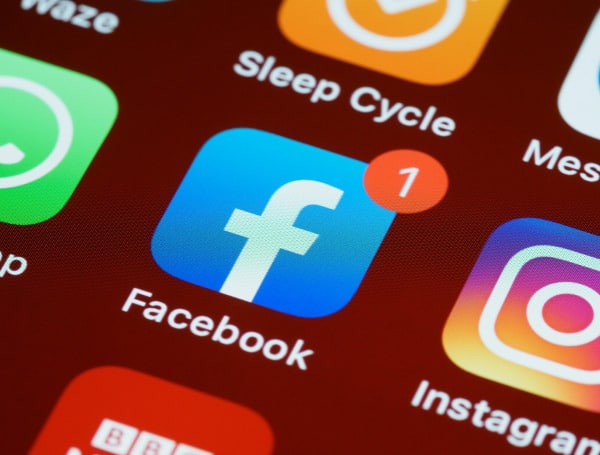In a priority of House Speaker Paul Renner, two House Republicans have filed a bill designed to prevent minors under age 16 from having social media accounts.
The bill (HB 1), filed by Rep. Tyler Sirois, R-Merritt Island, and Rep. Fiona McFarland, R-Sarasota, was released Friday night, as the 2024 legislative session prepares to start Tuesday.
During an appearance last month in Tallahassee, Renner said social media is having a “devastating effect on kids” and that lawmakers should be able to impose online regulations “in a meaningful way.”
Read: Gov. DeSantis Eyes Removing Biden From Florida Ballot
“I want to hear from everybody on what that looks like,” Renner said at the time. “You know, the idea that we can be libertarians where our kids are concerned? We’re not libertarians with our kids on anything. Adults are a different story. They wanted to do all that stuff. That’s their business. And it’s a free country. But for our kids, we’ve got to protect them.”
The 10-page bill would require social-media platforms to bar minors under 16 from creating social media accounts and use “reasonable age verification” methods to check the ages of people when accounts are created. It would require platforms to use independent organizations to conduct age verifications and would require denial of accounts for people who do not verify their ages.
The bill also would require social-media platforms to terminate existing accounts that are “reasonably known” by the platforms to be held by minors younger than 16 and would allow parents to request that minors’ accounts be terminated.
The attorney general would be able to file civil lawsuits alleging unfair and deceptive trade practices for violations of the law, with social media platforms potentially facing fines.
The House version of the bill received a number, HB 1, that has been traditionally reserved for priorities of House leaders. Sirois is chairman of the House Regulatory Reform & Economic Development Subcommittee, while McFarland last year shepherded through an online data-privacy bill that was closely watched by tech companies and other businesses.
Read: Florida Rep. Steube Keeps Pushing To End Fed-Funded Research On Animals, Even Overseas
But attempts across the country to crack down on social media use by minors have proven complicated — and, at least in some cases, contentious. Among the issues is how to verify ages.
Florida House Minority Leader Fentrice Driskell, D-Tampa, on Monday questioned how the bill could be enforced.
“It seems performative to me,” Driskell said. “I do think social media can have bad effects on our society and kids specifically, but I don’t know that this bill is going to solve the problem at all.”
Florida Attorney General Ashley Moody in October filed a federal lawsuit alleging that Meta, the parent company of Facebook and Instagram, uses “manipulative” features to keep minors hooked on the social media platforms. Moody’s lawsuit came the same day that other states joined together to file a similar lawsuit in California against the company.
Moody’s lawsuit contended that Meta has violated a law known as the Florida Deceptive and Unfair Trade Practices Act, which prohibits “unfair methods of competition, unconscionable acts or practices, and unfair or deceptive acts or practices in the conduct of any trade or commerce.” The lawsuit also alleged the company violated the federal Children’s Online Privacy Protection Act.
Meta in December filed a motion to dismiss the case, which has been moved to California. The motion is pending. In a statement provided to the News Service in October, Meta pushed back against the allegations in both lawsuits.
“We’re disappointed that instead of working productively with companies across the industry to create clear, age-appropriate standards for the many apps teens use, the attorneys general have chosen this path,” the statement said.
The company, for example, cited its terms of service, which it said prohibits minors under 13 from using Instagram. It also described how it restricts ads for teens and contended that research on negative impacts of social media on teens’ mental health is “not conclusive” and pointed to positive impacts that social media can have on young peoples’ lives.
Read: Florida Gov. DeSantis Says Trump ‘Flip-Flopped’ On Abortion, Suggests He Isn’t ‘Pro-Life’
Meanwhile Friday, Rep. Chase Tramont, R-Port Orange, filed a separate bill (HB 3) that would require age verification to try to prevent people under age 18 from having access to “material harmful to minors” on websites and apps.
It would set a series of standards for determining whether the material would be harmful, such as whether it “appeals to the prurient interest” and “lacks serious literary, artistic, political, or scientific value for minors.”
Android Users, Click To Download The Free Press App And Never Miss A Story. Follow Us On Facebook and Twitter. Sign up for our free newsletter.
We can’t do this without your help. Visit our GiveSendGo page and donate any dollar amount; every penny helps.



